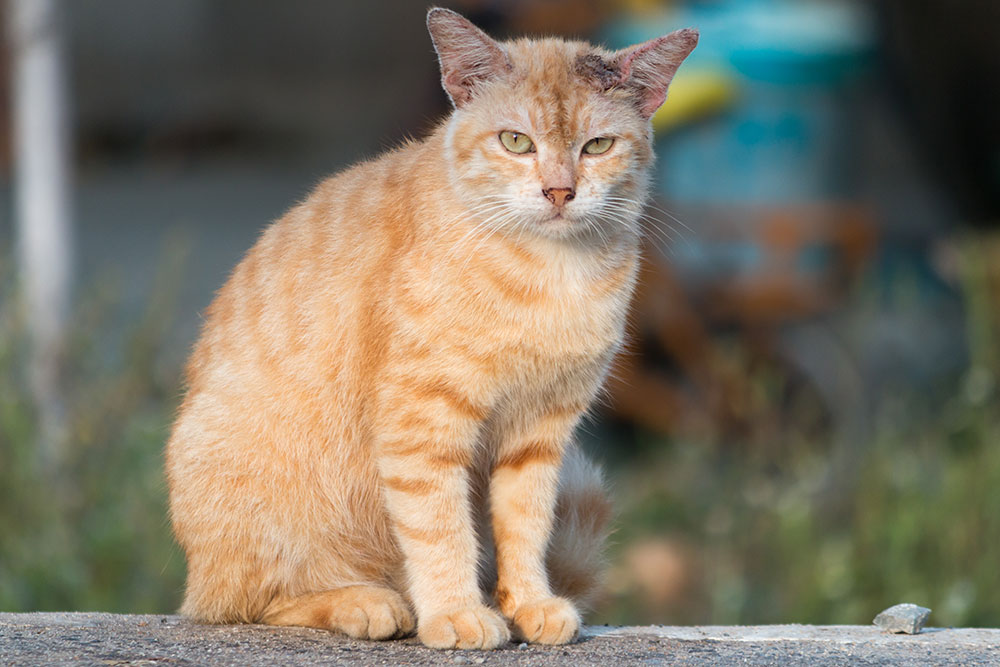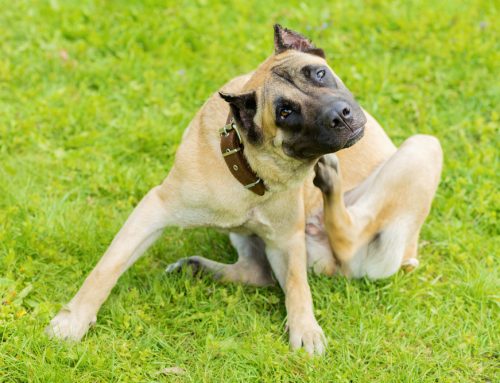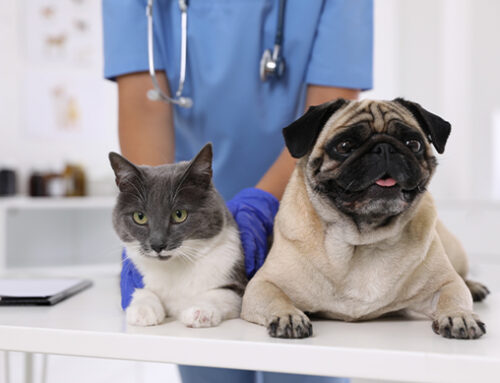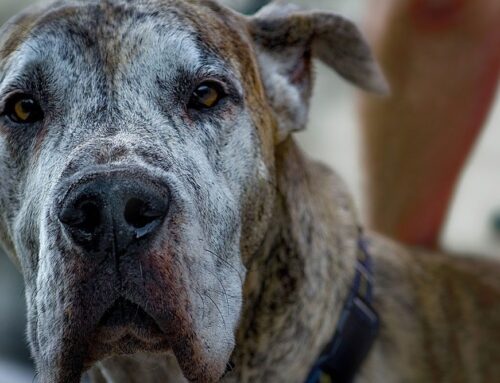Understanding Aging Cat Health: Key Diseases and Symptoms
As cats grow older, they become more susceptible to various health conditions that can impact their quality of life. Recognizing early signs of disease and seeking timely veterinary care is crucial for ensuring your cat’s well-being.
Regular check-ups at Fort Mill Animal Hospital can help detect and manage age-related illnesses before they become severe. Schedule a senior wellness exam to give your aging cat the proactive care they deserve.
Recognizing Signs of Arthritis in Aging Cats
Arthritis is a common condition in older cats, leading to joint pain and reduced mobility. Signs include:
- Difficulty jumping onto furniture
- Limping or stiffness, especially after rest
- Increased irritability or reluctance to be touched
Arthritis results from joint cartilage deterioration, causing chronic pain and discomfort. Diagnosis involves a physical examination, movement assessment, and imaging (X-rays) to evaluate joint health.
Treatment options include:
- Anti-inflammatory medications to reduce pain
- Joint supplements (glucosamine & chondroitin) to support cartilage health
- Weight management to minimize joint strain
- Physical therapy or acupuncture for improved mobility
Learn more about arthritis management:
Arthritis and Degenerative Joint Disease in Cats – InternationalCatCare
Home Care Tips
- Provide Soft Bedding: Padded surfaces help relieve joint pressure.
- Use Ramps or Steps: Helps cats access favorite spots safely.
- Keep Food & Water Bowls Easily Accessible: Avoid requiring excessive movement.
Identifying Symptoms of Chronic Kidney Disease (CKD) in Cats
Chronic Kidney Disease (CKD) is one of the most common conditions in senior cats, often developing gradually. Symptoms to watch for include:
- Increased thirst and urination
- Weight loss and reduced appetite
- Vomiting and lethargy
Diagnosis involves:
- Blood tests to evaluate kidney function
- Urinalysis to check for protein loss and dehydration
- Ultrasound or imaging for kidney structure assessment
Treatment focuses on slowing disease progression and managing symptoms:
- Specialized kidney-friendly diet (low phosphorus & protein)
- Fluids & hydration support to prevent dehydration
- Blood pressure regulation & phosphate binders to reduce kidney strain
Learn more about CKD in cats:
Chronic Kidney Disease in Cats – Cornell Feline Health Center
Long-Term Management
- Regular veterinary check-ups to monitor kidney function
- Encourage water intake with fresh water or cat fountains
- Offer moist food to support hydration
Want to know how your cat’s kidneys are functioning? Routine bloodwork can catch CKD early. Book a wellness visit to have your senior cat’s kidney values checked.
The Threat of Hyperthyroidism in Older Cats
Hyperthyroidism occurs when a cat’s thyroid gland produces excessive hormones, affecting metabolism. Signs include:
- Increased appetite but noticeable weight loss
- Hyperactivity and restlessness
- Increased thirst and urination
Diagnosis is confirmed through blood tests measuring thyroid hormone levels (T4).
Treatment options include:
- Medication (Methimazole) to manage hormone levels
- Radioactive iodine therapy (I-131) for permanent treatment
- Surgical removal of the affected thyroid gland
Learn more about feline hyperthyroidism:
Hyperthyroidism in Cats: Causes, Symptoms & Treatment Options
Emergency Situations
Seek urgent veterinary care if your cat experiences:
- Severe weight loss and muscle wasting
- Rapid heart rate or difficulty breathing
- Sudden behavioral changes or disorientation
If you’re noticing any of these symptoms, our team can help evaluate your cat’s thyroid function and determine next steps. Read our complete guide to hyperthyroidism in cats for a detailed look at diagnosis and treatment options.
Diabetes Mellitus in Senior Cats: What You Need to Know
Diabetes in cats occurs when the body cannot regulate blood sugar due to insulin resistance or deficiency. Symptoms include:
- Increased thirst and frequent urination
- Unexplained weight loss despite a healthy appetite
- Lethargy and decreased activity
Diagnosis involves:
- Blood tests to measure glucose levels
- Urinalysis to detect sugar in the urine
Treatment typically includes:
- Insulin therapy to regulate blood sugar
- Dietary modifications (high-protein, low-carb diets)
- Regular glucose monitoring to adjust treatment as needed
Preventive Measures
- Maintain a healthy weight to reduce diabetes risk
- Provide a consistent diet & feeding schedule
- Monitor early signs of excessive thirst & urination
Cognitive Dysfunction Syndrome (CDS) in Cats
Cognitive Dysfunction Syndrome (CDS), also called “feline dementia,” affects many aging cats. Symptoms include:
- Disorientation (staring at walls, getting lost in familiar areas)
- Changes in sleep patterns (restlessness at night)
- Decreased social interaction or increased anxiety
There is no definitive test for CDS. Diagnosis is based on ruling out other conditions and evaluating behavioral changes. See more at Supporting Your Senior Pet: Veterinary Care Recommendations.
Management strategies include:
- Nutritional supplements (Omega-3s & antioxidants)
- Environmental enrichment (toys, scratching posts, interactive play)
- Medications to support cognitive function
Behavioral Support
- Maintain a consistent routine to reduce stress.
- Provide puzzle toys & interactive activities to keep their mind engaged.
Learn more about preventive senior pet care:
Preventive Testing for Senior Pets – Zoetis Petcare
Importance of Regular Veterinary Care for Aging Cats
Routine veterinary check-ups help detect and manage aging-related diseases early, preventing unnecessary complications. At Fort Mill Animal Hospital, we offer tailored senior pet wellness exams to ensure your cat receives the best care.

Preparing for Vet Visits
- Keep a Health Journal: Track symptoms, appetite changes, and energy levels.
- Use a Comfortable Carrier: Reduce stress during transportation.
- Bring a List of Questions: Discuss concerns with your vet.
Meet our dedicated team who specialize in senior cat care:
Fort Mill Animal Hospital Team
Supporting Your Aging Cat at Home
Caring for a senior cat requires thoughtful adjustments to accommodate their changing needs.
Home Care Tips
- Encourage hydration – Provide extra fresh water sources or pet fountains.
- Provide comfortable bedding – Soft, warm surfaces reduce joint pain.
- Groom regularly – Helps prevent matting and keeps skin healthy.
When to Contact Your Veterinarian
Seek veterinary attention immediately if your cat exhibits:
- Rapid weight loss or extreme lethargy
- Difficulty breathing or severe vomiting
- Sudden behavioral changes or disorientation
Is your senior cat showing signs of weight loss, stiffness, or behavior changes? Request an appointment — catching these conditions early can add years to your cat’s life.
At Fort Mill Animal Hospital, we are committed to providing compassionate and expert care for your senior cat. By staying informed and proactive, you can help your cat live a longer, healthier, and more comfortable life.







Leave A Comment